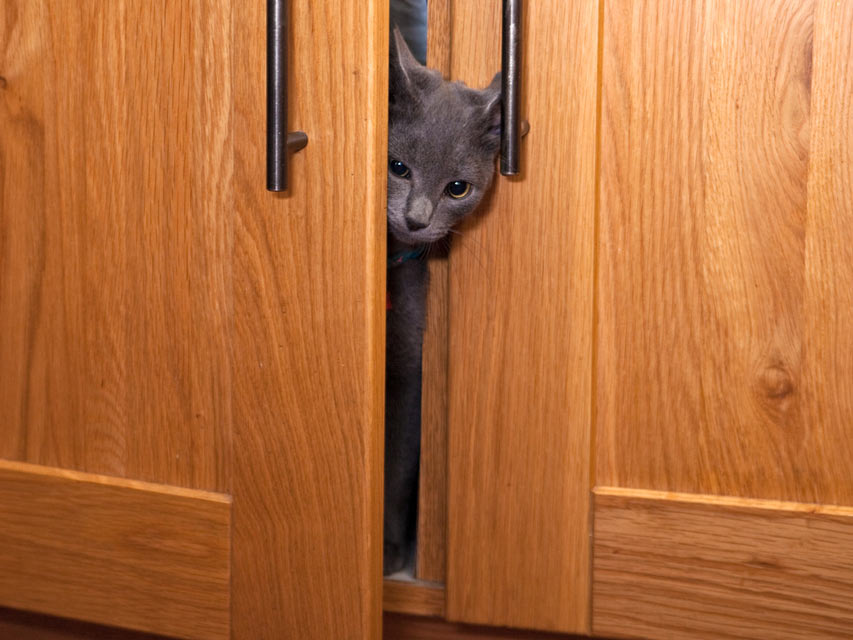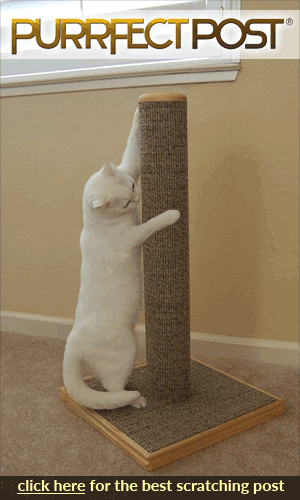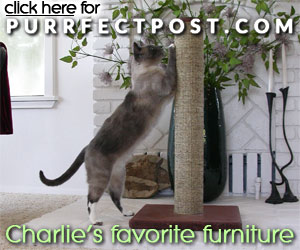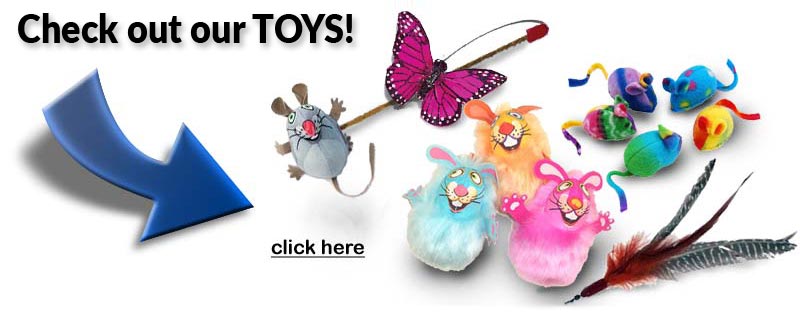- Home
- Common Cat Poisonings in the Home
Common Cat Poisonings in the Home

Cat-proofing your home is essential because there are many dangers lurking there, especially for curious kittens and more mischievous adult cats. Many of those dangers include poisonings. This list is not exhaustive, but it includes the most common household items that poison cats.
Medication Poisonings in Cats
Medications are the biggest cause of poisonings in cats in recent years. This includes cases of cats eating dropped medications, getting into packages and helping themselves, and being given medications by well-meaning owners. It includes human, pet, prescription, and over-the-counter medicines.
Keep all medications secured away from your cat. Never give your cat any medicine without talking to your veterinarian first. This includes over-the-counter pet medications, which may generally be safe for most cats but could be a problem for an individual if another medical condition is involved or if the cat is on other medications that could interact negatively with them.
Plants Can Be Poisonous to Cats
Many indoor and outdoor plants are toxic to cats, and lots of cats enjoy chewing on and eating plants. Be sure you check each plant in your home to determine whether it's toxic, and if your cat goes outside, know whether you have landscaping plants that are poisonous, too. You can start by checking this article: "Common Plants Poisonous to Cats."
If your indoor cat likes to chew on plants, consider planting some catnip or cat grass to allow him to do so safely.
Human Foods Can Poison Cats
Some human foods are toxic to cats. These include chocolate, garlic, onions, caffeine, xylitol, alcohol, and yeast dough. Keep food out of reach of your cat, and be sure you secure the garbage can, too. Some cats get into the garbage and can be sickened by ingesting toxic foods, mold or bacteria from rotting foods, or food packaging.
Chemicals Often Poison Cats
Cleaners, detergents, antifreeze, paint, and other chemicals can all be toxic to cats. Some, like antifreeze, are actually quite appealing to cats, so they must be kept secured and any spills or leaks cleaned thoroughly. Even if your cat doesn't go outside, take care to handle your antifreeze cautiously in case other neighborhood animals are drawn to it.
It's best to keep your cat out of the room while you are using cleaning chemicals and be sure you don't leave buckets containing them out where your cat might drink from them or knock them over. If a cat gets a chemical on his skin or fur, his first instinct will be to lick it off, which can cause a toxic ingestion, so give your cat a thorough bath if you think he's come into contact with a chemical.
Detergent pods are particularly dangerous because if a cat thinks one is a toy and bites it, the highly concentrated detergent inside comes shooting out at high pressure. This can cause the cat to inhale sharply, allowing detergent to get into the lungs where it can cause a very dangerous aspiration pneumonia.
Insecticides Can Be Poisonous to Cats
Insecticides used around the house or garden can be toxic to cats. Use caution when applying these chemicals, follow the labels, and observe any warnings about how long to keep pets away from the area.
A common poisoning in cats occurs when insecticides containing permethrins are used on them to control fleas. Permethrins are commonly used in canine topical anti-flea products. Never use an over-the-counter flea product on your cat without checking with your veterinarian first, and never use a product labeled for dogs on your cat.
 Loading... Please wait...
Loading... Please wait...





